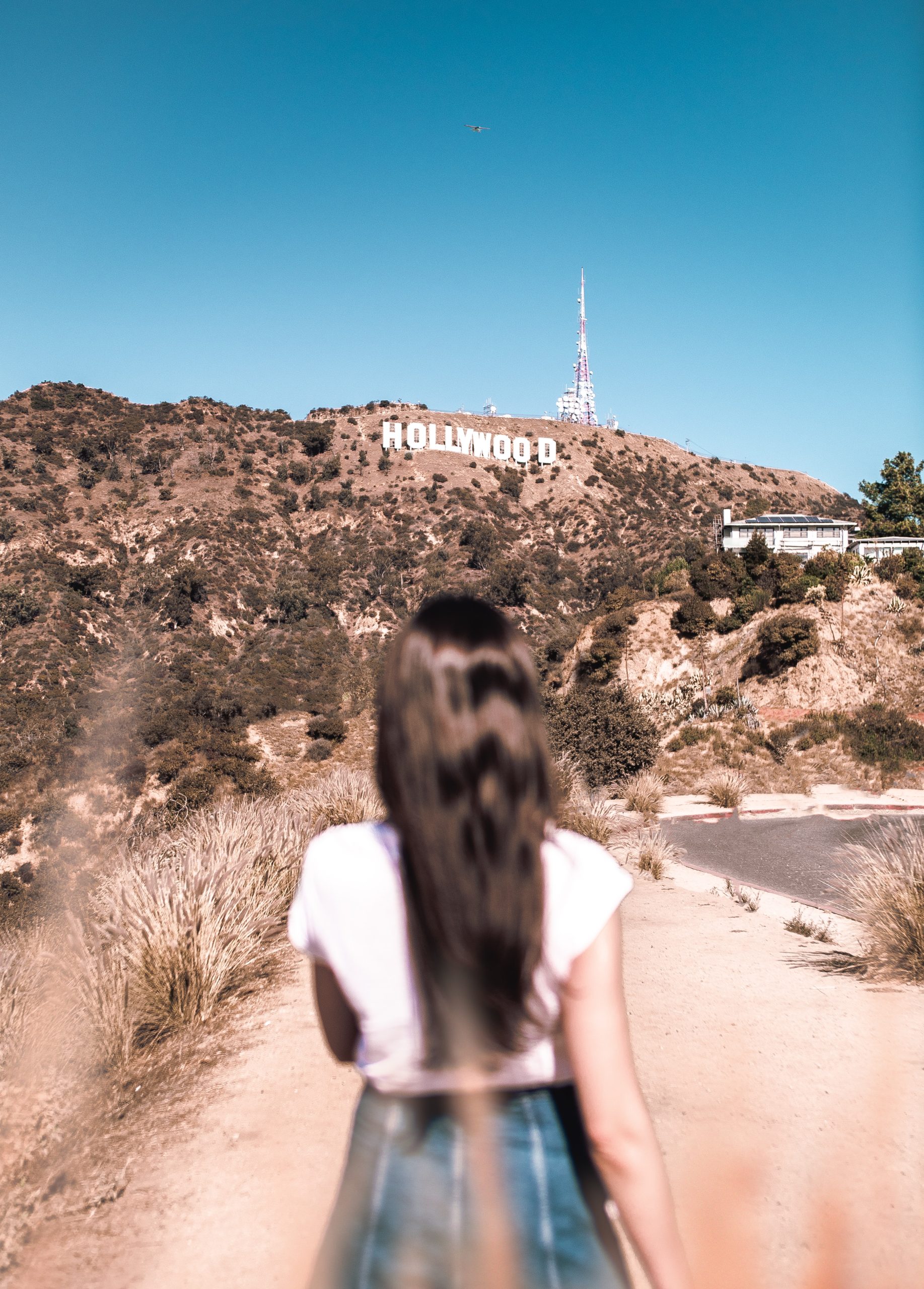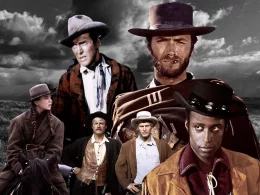Introduction
In recent years, music documentaries have surged in popularity, becoming a powerful medium to engage a new generation of viewers. By blending compelling storytelling, historical context, and cutting-edge technology, these documentaries offer an immersive experience that resonates with both long-time fans and curious newcomers. This article delves into the factors contributing to the growing appeal of music documentaries and examines how they are transforming the way we consume and appreciate music.
The Rise of Music Documentaries

Music documentaries have been around for decades, but their recent resurgence can be attributed to several key factors:
- Streaming Platforms: Services like Netflix, Amazon Prime, and Disney+ have made it easier than ever to access a wide range of music documentaries. These platforms offer a diverse selection, from biopics to concert films, making it simple for viewers to find something that piques their interest.
- Technological Advancements: High-definition cameras, drones, and advanced editing software have revolutionized the production quality of music documentaries. These tools allow filmmakers to create visually stunning and sonically immersive experiences.
- Social Media Influence: Social media platforms have become powerful tools for promoting music documentaries. Trailers, behind-the-scenes footage, and interviews can go viral, generating buzz and attracting a younger audience.
- Cultural Relevance: Many music documentaries tackle important social and cultural issues, making them relevant to contemporary audiences. By addressing topics like mental health, racial inequality, and gender dynamics, these films resonate deeply with viewers.
The Impact of User-Generated Content
The rise of user-generated content has also played a significant role in shaping the landscape of music documentaries. Platforms like YouTube and TikTok allow fans to create their own videos, share reactions, and remix original content, effectively contributing to the narrative surrounding their favorite artists and genres. This democratization of content creation gives rise to unique, grassroots storytelling that often captures the zeitgeist in ways that traditional documentaries may not. By incorporating these fan perspectives into the larger conversation, music documentaries become more relatable and relevant to younger viewers who engage with music in a more participatory manner. This interplay between professional documentaries and user-generated content creates a vibrant ecosystem where music culture can thrive and evolve.
Storytelling: The Heart of Music Documentaries

At the core of every successful music documentary is a compelling story. Whether it’s the rise of a legendary band, the struggles of an unsung hero, or the making of a groundbreaking album, these narratives captivate audiences and provide a deeper understanding of the music and the artists behind it.
- Biographical Documentaries: Films like “Amy,” which chronicles the life of Amy Winehouse, and “What Happened, Miss Simone?” about Nina Simone, offer intimate portraits of iconic musicians. By exploring their personal lives, struggles, and triumphs, these documentaries humanize the artists and foster a deeper connection with viewers.
- Concert Films: Documentaries like “Homecoming,” which captures Beyoncé’s historic Coachella performance, and “Stop Making Sense,” featuring Talking Heads, provide an electrifying concert experience. These films allow viewers to experience the magic of live performances from the comfort of their homes.
- Historical Documentaries: Films like “The Defiant Ones,” which examines the careers of Dr. Dre and Jimmy Iovine, and “20 Feet from Stardom,” which highlights the contributions of backup singers, offer valuable historical context. These documentaries educate viewers about the evolution of music and the often-overlooked figures who have shaped its history.
Cross-Cultural Collaborations and Global Perspectives
In today’s interconnected world, music documentaries are increasingly showcasing cross-cultural collaborations and global perspectives. Filmmakers are exploring the rich tapestry of musical traditions from various cultures, shedding light on genres and artists that may have been overlooked in the past. Documentaries such as Rumble: The Indians Who Rocked the World and Soundtrack: The Story of the Music celebrate the contributions of diverse communities to the music landscape, presenting a more inclusive narrative that resonates with younger audiences. This approach not only broadens viewers’ understanding of music but also fosters a sense of appreciation for global artistic expressions, encouraging viewers to embrace diversity in their musical tastes.
Technology: Enhancing the Viewing Experience

The integration of advanced technology has significantly enhanced the appeal of music documentaries. High-definition visuals, surround sound, and innovative filming techniques create an immersive experience that transports viewers into the world of music.
- High-Definition Visuals: The use of 4K and even 8K cameras allows filmmakers to capture stunning visuals, from intimate close-ups of artists to sweeping shots of concert crowds. This level of detail enhances the viewing experience and makes the documentary feel more lifelike.
- Surround Sound: Advanced audio technology, such as Dolby Atmos, provides an immersive sound experience. Viewers can hear every note, beat, and vocal nuance, making them feel as though they are part of the performance.
- Innovative Filming Techniques: Drones, GoPros, and other innovative filming techniques offer unique perspectives and dynamic shots. These tools allow filmmakers to capture moments and angles that were previously impossible, adding a new dimension to music documentaries.
The Role of Music Documentaries in Mental Health Awareness
Another significant aspect of contemporary music documentaries is their ability to address mental health issues within the music industry. Many artists have openly shared their struggles with anxiety, depression, and addiction, creating an important dialogue around mental health. Documentaries like Amy, which chronicles the life of Amy Winehouse, and Halsey: If I Can’t Have Love, I Want Power delve into the personal battles that musicians face, shedding light on the darker side of fame and the pressures associated with the music industry. By humanizing these artists and portraying their vulnerabilities, these films resonate deeply with younger audiences who may also grapple with similar issues. This not only fosters empathy but also encourages viewers to seek help and engage in conversations about mental well-being, further solidifying the role of music documentaries as a powerful medium for social change.
Cultural Impact: Addressing Relevant Issues

Many modern music documentaries go beyond the music to address pressing social and cultural issues. By tackling topics like mental health, racial inequality, and gender dynamics, these films resonate deeply with contemporary audiences and spark important conversations.
- Mental Health: Documentaries like “Miss Americana,” which explores Taylor Swift’s struggles with mental health, and “Avicii: True Stories,” which delves into the late DJ’s battle with anxiety and addiction, shed light on the mental health challenges faced by musicians. These films help destigmatize mental health issues and encourage open dialogue.
- Racial Inequality: Films like “The Black Godfather,” which tells the story of influential music executive Clarence Avant, and “Summer of Soul,” which documents the 1969 Harlem Cultural Festival, highlight the contributions of Black artists and address issues of racial inequality. These documentaries celebrate Black culture and inspire viewers to reflect on the ongoing fight for racial justice.
- Gender Dynamics: Documentaries like “RBG,” which explores the life of Supreme Court Justice Ruth Bader Ginsburg, and “The Punk Singer,” which chronicles the career of feminist punk icon Kathleen Hanna, address gender dynamics and the fight for women’s rights. These films empower viewers and underscore the importance of gender equality.
A Community of Creators: Empowering Emerging Filmmakers
The rise of music documentaries has also opened doors for emerging filmmakers, providing a platform for new voices and perspectives in the industry. Aspiring directors and producers can explore a wealth of stories that celebrate lesser-known artists or delve into niche genres that deserve recognition. Initiatives like The Daze and festivals that focus on music-related films create opportunities for these filmmakers to showcase their work and connect with audiences who share their passion for music. This empowerment of new talent enriches the documentary landscape, allowing for innovative storytelling that reflects the diverse musical tapestry of today. As younger generations seek fresh content that resonates with their experiences and values, the infusion of new ideas from emerging filmmakers ensures that music documentaries remain vibrant and relevant.
The Future of Music Documentaries: Immersive and Interactive
As technology continues to advance, the future of music documentaries looks set to be even more immersive and interactive. Innovations in virtual reality (VR) and augmented reality (AR) are poised to revolutionize the way viewers experience these films. Imagine being able to attend a virtual concert, explore backstage areas, or even interact with artists in a VR environment. These advancements will make the viewing experience more engaging than ever, blurring the lines between documentaries and live performances. As younger generations increasingly seek immersive content, the music documentary genre is well-positioned to evolve with these trends, ensuring its continued relevance in the digital age.
Comparative Table: Traditional vs. Modern Music Documentaries
| Feature | Traditional Music Documentaries | Modern Music Documentaries |
| Distribution | Limited to physical media and theaters | Streaming platforms, on-demand access |
| Audience | Niche audience, mostly music enthusiasts | Broader, global audience, younger viewers |
| Content | Focused on legendary artists and events | Covers a wide range of genres and artists |
| Production Techniques | Basic cinematography and interview formats | High-quality visuals, VR, AR, immersive sound design |
| Engagement | Passive viewing | Active engagement through social media |
| Cultural Impact | Primarily historical retrospectives | Social and political commentary included |
Analysis Table: Key Elements of Modern Music Documentaries
| Element | Description | Impact on Younger Viewers |
| Accessibility | Available on streaming platforms with ease of access globally | Increased consumption by a tech-savvy, younger audience |
| Storytelling | Focus on personal and emotional narratives of artists | Fosters deeper emotional connections between artists and fans |
| Technological Innovation | Use of advanced techniques like VR and immersive sound design | Appeals to younger generations with high expectations for media engagement |
| Cultural Relevance | Highlights the intersection of music with social and political issues | Engages socially-conscious youth and fosters broader cultural conversations |
| Fan Engagement | Interactive elements and behind-the-scenes access shared on social platforms | Strengthens fan communities and drives music trends |
| Nostalgia | Blends historical context with modern storytelling techniques | Bridges generational gaps, introducing younger audiences to older music styles |
Conclusion
Music documentaries are more than just films about music; they are powerful storytelling tools that engage a new generation of viewers. By leveraging advanced technology, addressing relevant social issues, and offering compelling narratives, these documentaries provide an immersive and enriching experience. As streaming platforms continue to expand their offerings and filmmakers push the boundaries of what’s possible, the future of music documentaries looks brighter than ever.
Whether you’re a die-hard music fan or a curious newcomer, there’s never been a better time to dive into the world of music documentaries. So grab your popcorn, turn up the volume, and get ready to be captivated by the stories behind the music you love.










